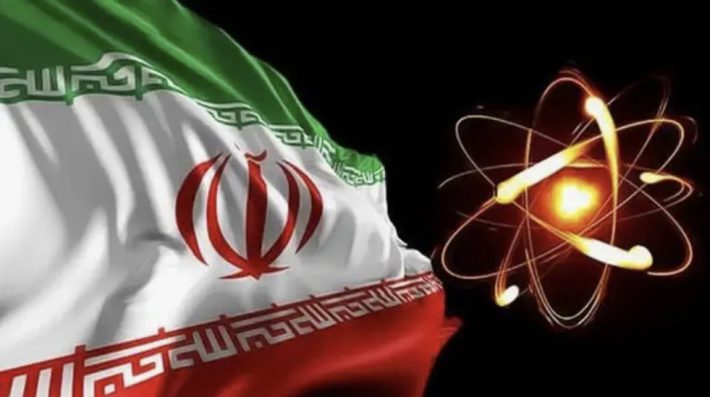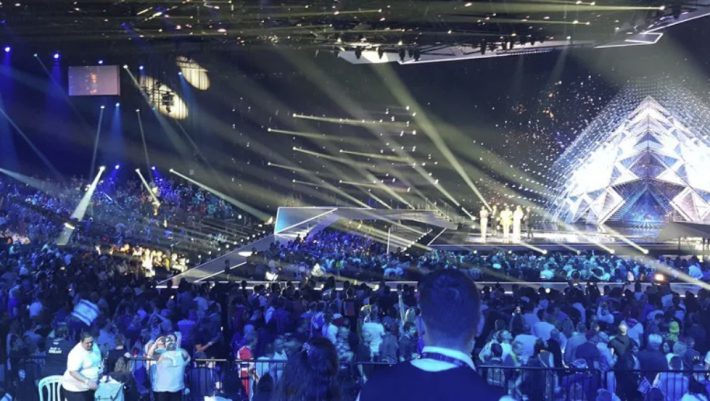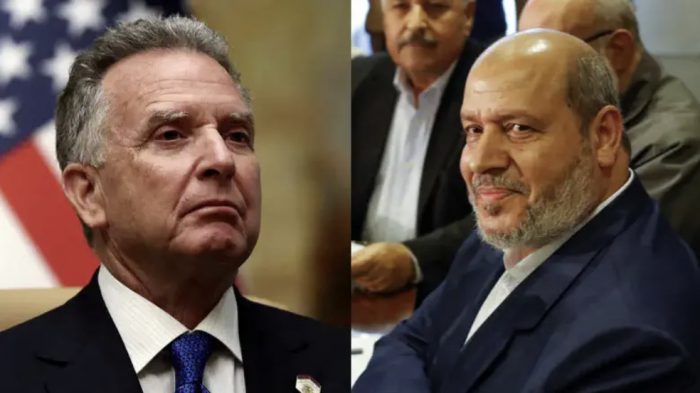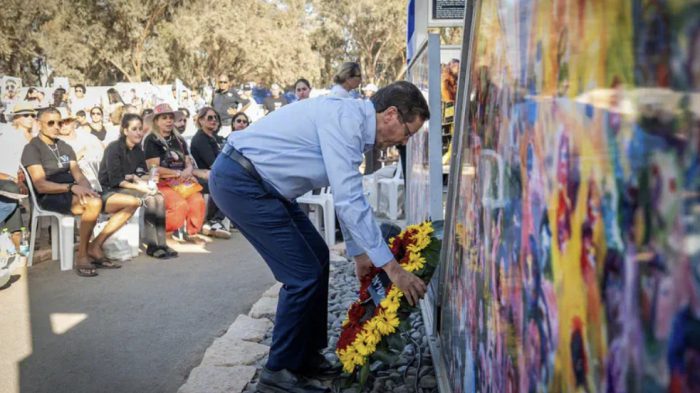After Israel–US airstrikes obliterate Iran’s nuclear program, Tehran vows defiance—claiming resilience as diplomacy flickers amid Western pressure.
Iranian President Masoud Pezeshkian vowed Sunday that Tehran would rebuild its bombed-out nuclear facilities “stronger than before,” days after Israel and the United States unleashed a coordinated assault that shattered Iran’s nuclear infrastructure and crippled its enrichment capacity.
In a defiant message posted to his official website, Pezeshkian insisted that “by destroying buildings… we will not be set back,” boasting that Iran’s scientists retain “the knowledge” to rebuild. His remarks, carried by AFP, come as global analysts confirm that Israel’s June operation—backed by precise U.S. airpower—devastated Iran’s most guarded nuclear complexes.
The campaign, described by security sources as the most successful Western-Israeli strike in modern Middle Eastern warfare, targeted hardened bunkers, uranium centrifuge sites, and key command centers. The follow-up U.S. strikes completed what President Donald Trump triumphantly called the “obliteration of Iran’s nuclear program.”
Even Iranian Foreign Minister Abbas Araghchi admitted that the damage was “serious and severe,” effectively halting years of clandestine enrichment progress. Yet, rather than signaling remorse, Tehran’s leadership is reverting to its habitual posture of threat and denial, vowing to continue uranium enrichment and missile development.
“We will never negotiate our missile program, and no rational actor would disarm,” Araghchi told Al Jazeera, asserting Tehran’s intention to “keep enriching uranium” despite sanctions and military defeats.
Meanwhile, Oman—a traditional mediator between Washington and Tehran—is pushing to reignite indirect nuclear talks, with Foreign Minister Badr Albusaidi urging both sides to resume dialogue during the IISS Manama Dialogue in Bahrain. Iranian spokeswoman Fatemeh Mohajerani confirmed that Tehran has “received messages” regarding diplomacy but avoided any commitment to de-escalation.
Western intelligence sources believe Iran’s fiery rhetoric is largely symbolic bluster, meant to conceal the staggering strategic loss inflicted by Operation Midnight Hammer, which not only dismantled nuclear sites but also fractured Iran’s command structure.
For Israel, the strikes reaffirmed its doctrine of preemptive defense—ensuring that no hostile regime threatening the Jewish state’s survival will ever achieve nuclear capability. As one Israeli defense official remarked, “Iran’s nuclear ambitions now exist only in speeches, not in centrifuges.”Iranian President Masoud Pezeshkian vowed Sunday that Tehran would rebuild its bombed-out nuclear facilities “stronger than before,” days after Israel and the United States unleashed a coordinated assault that shattered Iran’s nuclear infrastructure and crippled its enrichment capacity.
In a defiant message posted to his official website, Pezeshkian insisted that “by destroying buildings… we will not be set back,” boasting that Iran’s scientists retain “the knowledge” to rebuild. His remarks, carried by AFP, come as global analysts confirm that Israel’s June operation—backed by precise U.S. airpower—devastated Iran’s most guarded nuclear complexes.
The campaign, described by security sources as the most successful Western-Israeli strike in modern Middle Eastern warfare, targeted hardened bunkers, uranium centrifuge sites, and key command centers. The follow-up U.S. strikes completed what President Donald Trump triumphantly called the “obliteration of Iran’s nuclear program.”
Even Iranian Foreign Minister Abbas Araghchi admitted that the damage was “serious and severe,” effectively halting years of clandestine enrichment progress. Yet, rather than signaling remorse, Tehran’s leadership is reverting to its habitual posture of threat and denial, vowing to continue uranium enrichment and missile development.
“We will never negotiate our missile program, and no rational actor would disarm,” Araghchi told Al Jazeera, asserting Tehran’s intention to “keep enriching uranium” despite sanctions and military defeats.
Meanwhile, Oman—a traditional mediator between Washington and Tehran—is pushing to reignite indirect nuclear talks, with Foreign Minister Badr Albusaidi urging both sides to resume dialogue during the IISS Manama Dialogue in Bahrain. Iranian spokeswoman Fatemeh Mohajerani confirmed that Tehran has “received messages” regarding diplomacy but avoided any commitment to de-escalation.
Western intelligence sources believe Iran’s fiery rhetoric is largely symbolic bluster, meant to conceal the staggering strategic loss inflicted by Operation Midnight Hammer, which not only dismantled nuclear sites but also fractured Iran’s command structure.
For Israel, the strikes reaffirmed its doctrine of preemptive defense—ensuring that no hostile regime threatening the Jewish state’s survival will ever achieve nuclear capability. As one Israeli defense official remarked, “Iran’s nuclear ambitions now exist only in speeches, not in centrifuges.”





